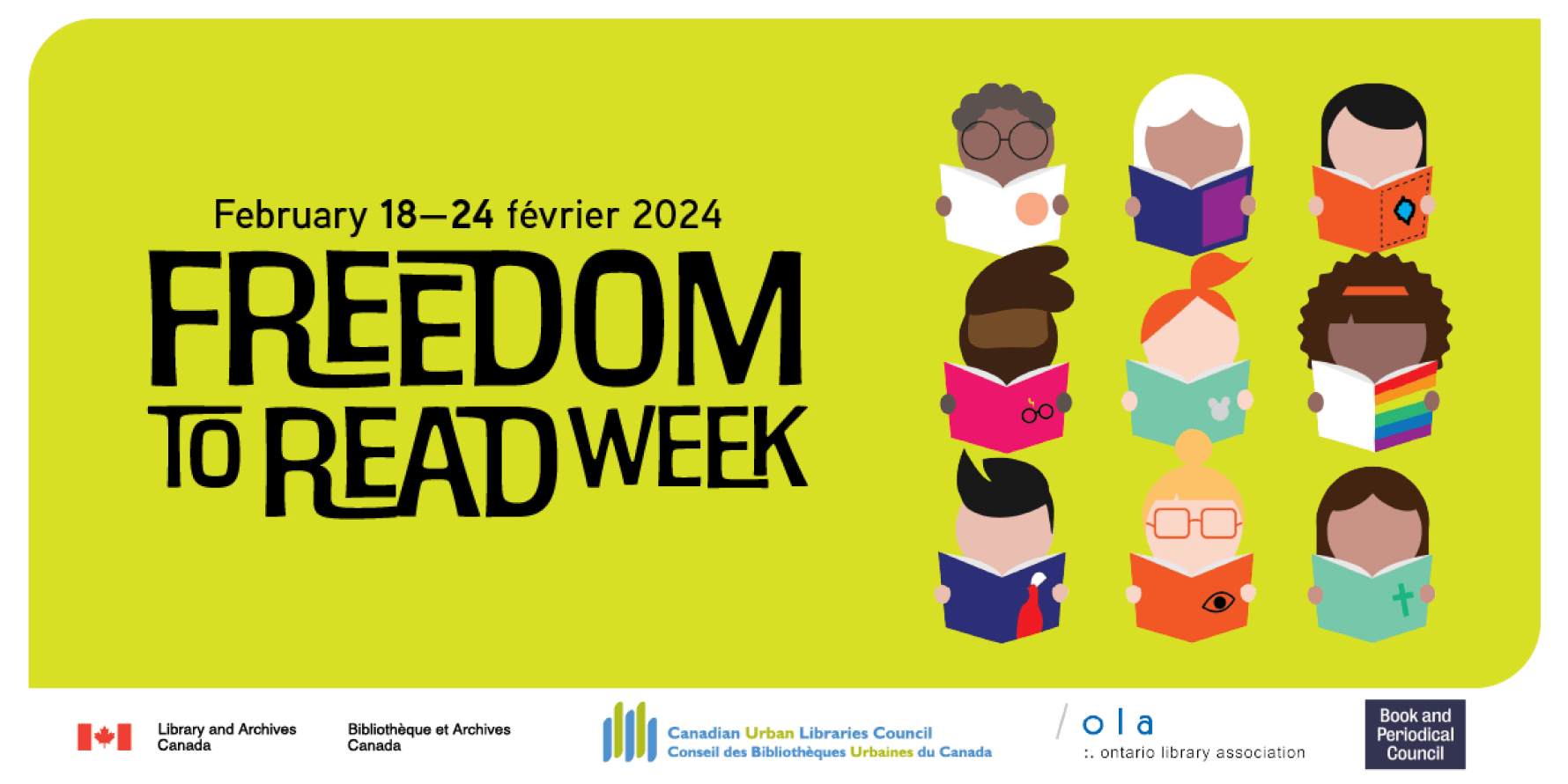
Written by Erin, Collection Development Librarian
There is a famous quote about libraries by Jo Godwin that I love: A truly great library contains something in it to offend everyone.
But what about when it comes to children and teens?
Public Libraries are defenders of intellectual freedom. We provide access to a wide range of information, viewpoints, and discussions. We believe that being able to freely access a variety of stories, voices, perspectives, and opinions helps create an empathetic, curious, and informed community. And while it is important for people of all ages to have access to this diversity of ideas and information, it may be especially important for children and teens.
Children and teens are still learning about the world around them, as well as the world within them – who they are at their core, their likes and dislikes, what makes their heart sing, and what inspires them. They are trying to make sense of their feelings, their family, their community, and the world. Public libraries are where children and teens can freely access a wide variety of information and ideas that will help them grow and learn, as well as build empathy and broaden their perspectives.
Mirrors, Windows, and Sliding Glass Doors
In the 1990s, Rudine Sims Bishop, an expert in multicultural children’s literature, introduced the idea of books as mirrors, windows, and sliding glass doors. Books can act as mirrors, allowing the reader to see themselves reflected back, showing that they are not alone and that they are important. Or books can act as windows and sliding doors, letting the reader experience the world in a way they never have before, helping them grow and see beyond themselves. This is why it is so important to have books by and about diverse voices, and for children and teens to have free access to these stories.
Who Decides What Children Can Read
Sometimes people are concerned about the books and resources that are in a library, particularly when it comes to school and public libraries, where children and teens spend their time. And this is understandable. It is natural to want to protect children from what you believe are offensive or age-inappropriate ideas or information. But it is important to remember, that while you can decide what your own child can or cannot read, listen to, or watch, you do not have the right to make that decision for other children. Nor do public library staff; that responsibility lies with their own parents and guardians.
Increase in Requests to Remove Books from Libraries
In 2023, libraries across Canada and the United States saw a significant increase in requests to remove books from libraries. From January to August, among reporting public libraries in the United States, there were 531 censorship requests, resulting in a total of 3,923 titles (Book Ban Data, ALA Office for Intellectual Freedom). The majority of these titles are by or about 2SLGBTQIA+ and BIPOC people.
In Canada, the number of reported requests to remove, relocate, or restrict access to books for children or teens in a public or school library increased by 109% from 2022 (Library Challenges Database, Centre for Free Expression). The vast majority of the titles represent 2SLGBTQIA+ and BIPOC voices and experiences.
This trend is very concerning. It is deeply troubling that the voices being silenced are those that have fought for years to be heard, and are those providing much needed mirrors, windows, and sliding glass doors. Public libraries exist to provide equal access to a wide variety of ideas, information, opinions, perspectives, and stories, helping to create a more informed, empathetic, and curious community.
Let's not forget about children and teens and their incredible capacity to think deeply, identify injustice, and empathize with the world around them. Given the chance, young readers can teach us all to be more kind, fair and understanding.
In a time when books by and about 2SLGBTQIA+ and BIPOC people are being challenged at alarming rates, it is even more crucial for all of us to really think about the impact of diverse stories, and the message we share when we restrict access to diverse stories.
Additional Resources
You can read more about book banning in the United States, and the books being challenged here in Canada:
Book Bans, PEN America
Library Challenges Database, Centre for Free Expression, Toronto Metropolitan University
Intellectual Freedom Challenges reports, the Canadian Federation of Library Associations (CFLA-FCAB)
Banned and Challenged Books, ALA Office for Intellectual Freedom


Add a comment to: Exploring The World and Reading Free: Children, Teens and Public Libraries